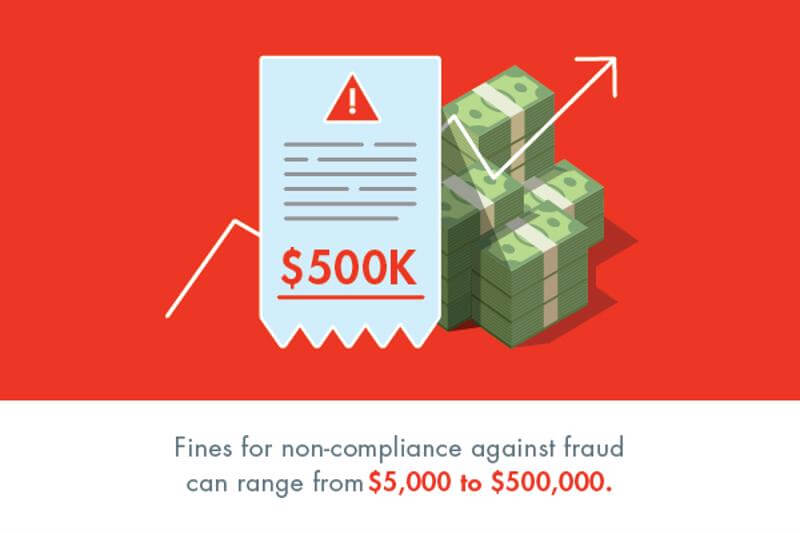Compliance with the Payment Card Industry Data Security Standard has long been an important part of security planning for businesses. Now that instances of fraud are higher than ever, though, this critical standard is something that companies simply can’t overlook.
There are a number of essential strategies organizations should have in place to prevent fraud, and many of these are built right into PCI compliance. In this way, a compliant business is considerably safer from risks of fraud. Let’s take a look at how PCI standards support efforts to stop payment fraud, as well as the ways in which your business can take this initiative a step further.
1) Holding all organizations responsible
Before PCI DSS was instituted in 2004, there was no existing universal standard that held organizations responsible for the security of sensitive payment details. While many merchants and financial service providers had previously made efforts to safeguard this data, PCI DSS created an overarching standard that holds every entity dealing with cardholder details – including all businesses and service providers that transmit or store this information – to the same, staunch standard.
“A compliant business is considerably safer from risks of fraud.”
In this way, every organization is on the same page, and there are no gaps in security between merchants, financial institutions or other groups that deal with payment card information. This reduces opportunities for malicious activity and fraud.
2) Ensuring encryption for sensitive payment data
The PCI Security Standards Council explained there are very specific security measures required for organizations that store, transmit or in any way deal with cardholder information. One of the most important is encryption. This advanced protection technology ensures that even if an unauthorized individual is able to access a system used to store or transmit sensitive payment card information, this user will not be able to read or use that data for fraudulent purposes. Encryption measures make data illegible to everyone except those with access to the decryption key.
In addition to encryption, organizations must also:
- Configure and maintain a robust firewall.
- Utilize strong password protection.
- Leverage anti-virus programs and ensure regular updates.
- Track and monitor access to the network underpinning cardholder data systems.
These protection measures work together to prevent this critical data from falling into the wrong hands.
However, some PCI-beholden organizations prefer to use a cloud-based structure wherein cardholder details are kept off-site, and the business stores an encrypted token within its on-premise architecture. In this way, information is securely protected and inaccessible to unauthorized users.
3) Motivating with non-compliance fines
PCI DSS includes several key requirements an organization must meet before it is considered compliant. These include:
- Assessing the data an institution deals with as well as the protections in place to safeguard it.
- Addressing any vulnerabilities that might allow for unauthorized access to payment card details and fraud.
- Reporting on these efforts to governing bodies.
In order to fully ensure every business dealing with this sensitive information remains compliant and vigilant against fraud, PCI DSS also includes fines for organizations found to be non-compliant. According to Focus On PCI, these can range from $5,000 to $500,000 – not including other costly breach consequences – depending on the severity of the event.
 PCI compliance fines can have a big impact on the bottom line.
PCI compliance fines can have a big impact on the bottom line.Going beyond PCI with an automated solution
In addition to the important standards included in PCI compliance, organizations can take their protections a step further with an automated software solution that bolsters fraud prevention. This kind of technology helps ensure fully secure file and data transfers, and provides a compliant framework for credit card payments. Use of a solution like this, alongside PCI requirements, is one of the best ways to help stop fraudulent activity.
To find out more about how an automated solution can benefit your organization in the fight against fraud, contact SK Global Software today.